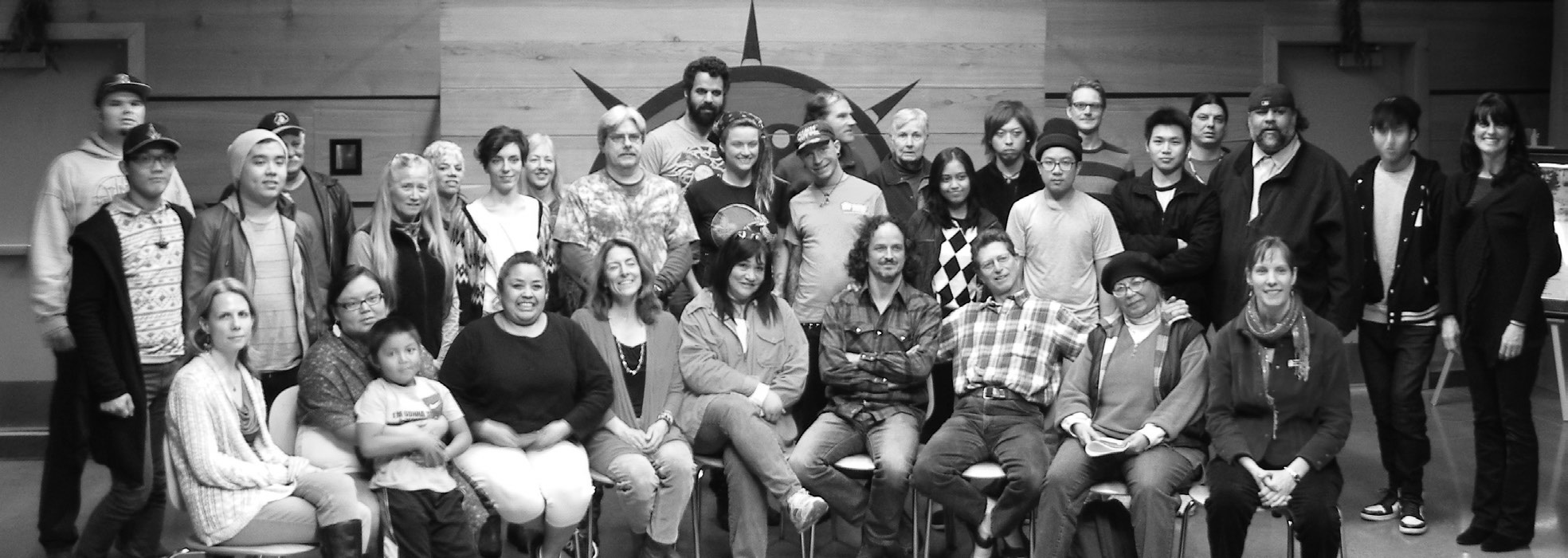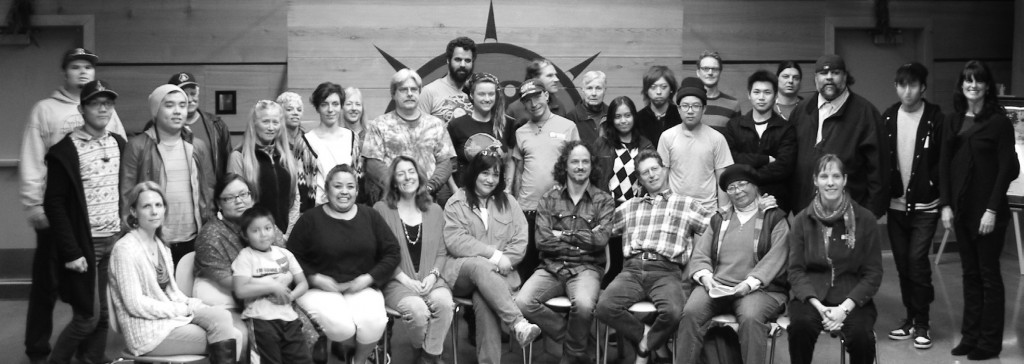
By Eric Trent
Seated beneath a giant, square skylight, a soft light is showering the middle of the room then slowly fading to darkness in the outer reaching corners. About 40 people are seated in the Long House on the Peninsula College campus, getting ready to watch the documentary “Come Hell or High Water: The Battle for Turkey Creek” a documentary featuring activist Derrick Evans, who fights corporate influence, real estate developers and local politicians in his hometown of Turkey Creek, Mississippi.
The film is a powerful piece detailing a small, historical, African-American community banding together to face off against greedy politicians and corporations who want to build apartments, casinos and hotels on the land of their ancestors. Derrick Evans is a sixth generation Turkey Creek resident who decided to leave his teaching job in Boston and head back to Mississippi to fight for and save his hometown.
The film begins with Evans and his grandmother visiting a new apartment complex that was built over part of Turkey Creek’s historical cemetery, a sobering reminder of the limitless possibilities of real estate and political greed. The documentary follows Evans during his journey in recapturing the innocence of his hometown, highlighting the sacrifices needed and the invaluable role of community involvement that is needed in preserving the environment and their town.

You become invested in Evans and his fellow community members and find yourself rooting for them during the course of the film, hoping that they are able to overcome this evil entity that is attempting to destroy their way of life and everything they know. You begin to see the power of connectedness, the power of a community rallying together and uniting to defeat a common enemy.
As the final credits roll Derrick Evans steps out of the shadows, a figure almost larger than life. He opens himself up to an answer and question forum for the crowd. You are almost taken back by his real-life presence after watching him on screen becoming a champion for environmental and cultural rights. “I don’t believe in the individual icon,” Evans says. “I reluctantly agreed to this documentary and found myself in that situation. When we lift up and celebrate icons, some people perpetuate the belief that they couldn’t do the same.”
Evans went on to explain how tangible the Turkey Creek situation was. “Some pieces of this story could play out anywhere, in anyone’s life, in any community. Things happen for a reason.”
One person asked what could be done to prevent something like this. Evans said, “It depends. It’s not a one size fits all situation. This fight continues. Myself, Leah, the director, and ten others who worked on the film, scientists, shrimp boat captains, grandmothers, we all got organized around a lot of good ideas.”
In explaining the toll that this ordeal took on him, Evans noted “You know you’re going to come out burnt. You don’t think: how’s this going to look on my resume? You don’t calculate anything, you impulsively step up. My mother told me that there’s no bottom to this. It shook me up. I got to thinking, if the effort is instruction so that things are different for someone else, somewhere, it will be worth it.”
The last question of the afternoon was a powerful one. “The film was beautiful. But it saddens me that there won’t be an ending. How do you keep your cool?” Evans responded by saying: “It’s important to remember that it’s not about me. Your biggest hurdle is your own ego, if you’re not careful. The world has a lot of problems that we didn’t create. There’s a spiritual part about helping. It’s something much bigger than us, and it’s OK to not have everything figured out.
